
Newly Updated
Image: Scott Webb
Making a major shift can feel ominous and riddled with risk. There are so many important factors to consider. But is making your shift too 'serious' actually what's sabotaging you? Natasha shares how play can get you moving faster towards work you love.
Black and white.
Left and right.
Good and bad.
Work and play.
Contradictory, antithetical, either-or ideas.
The world of work and careers is serious stuff, and rightly so.
It's inextricably linked to the fundamental business of survival in all its senses: financial stability; family responsibility; social acceptance; legacy.
So when it comes to making a career change, foreheads naturally furrow. Shoulders slump.
Serious risks. Weighty decisions.
However fulfilling you dream of your future career being – however much pleasure you imagine there being at the end of your journey – the process of getting there, according to traditional logic, will almost certainly be full of hard work.
And yet… in all our work at Careershifters, we've discovered that there's an unexpected accelerator to the process of career change, and it's not what you'd expect.
It's play.
“History is mostly told as a long fight for the necessities, not the luxuries: the fight for freedom, equality, safety, self-governance. Yet the history of delight matters, too, because so many of these seemingly trivial discoveries ended up triggering changes in the realm of Serious History.” – Steven Johnson, 'Wonderland: How Play Made the Modern World'
If you don't like it, you won't do it
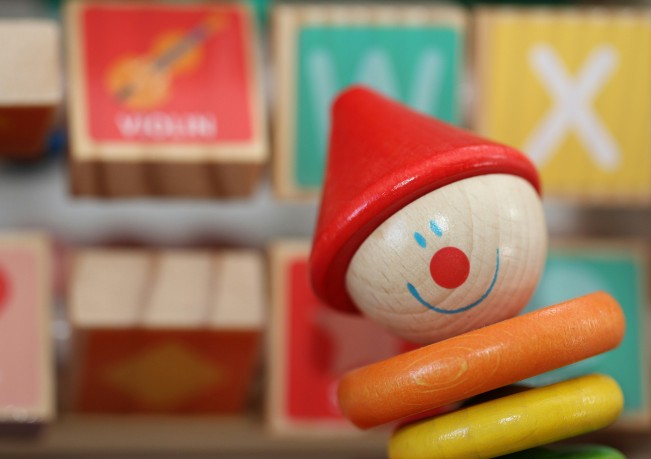
No matter who you are, or how you operate, one thing is for sure: you're far more likely to do something you enjoy than something you don't.
Career change, more often than not, gets put on the back burner of people's lives, because it feels uncomfortable. Every time you try to dive in, you get unceremoniously swatted around by uncertainty, significance, hard work, self-scrutiny, judgement… It's all so heavy and serious.
And so the cycle begins:
- Avoid your career change because it feels unpleasant
- Feel stuck and stale and useless
- Blame yourself for staying stuck
- Avoid your career change because it feels unpleasant
And so on, and so on, and so on…
So, if you really want to make progress on your career change, you have to make it something you can't wait to get stuck into.
Sometimes, that means doing things that don't feel like they'll make you any progress. It means trying things just for the fun of it, or because you're a little curious about what they're like.
The things that feel 'fun' are also powerful indicators of where you should be focusing your attention.
The things you do (because they feel good) to avoid the things you don't do (because they don't feel good) aren't always just procrastination. They can be clues, too.
For Arianna, this principle led her directly to her new career (entirely accidentally, and utterly brilliantly).
While avoiding something she didn't want to do, she indulged in something that felt more like play… and then the light bulb went off...
“On the Careershifters Career Change Launch Pad we had Get It Done Sprints, where we'd work together to achieve all kinds of things over the course of 12 hours.
 “One of the coaches was pushing me to complete one of the Missions I'd been putting off.
“One of the coaches was pushing me to complete one of the Missions I'd been putting off.
“Instead, I tidied up my wardrobe.
“I took all my clothes out, started having a good clear out, and that's all I had to report back on in our next call an hour later.
“But in doing that, I remembered that my mother once hired a team of women when she moved house. These women unpacked and organised the whole house in a few hours, and my mother, who's no fool, paid quite a lot of money to have that done.
“I had done that for her the previous time she'd moved house and loved it.
“And any time my friends move house, I always get really pushy about volunteering to help, because I love doing it. I find it really relaxing and enjoyable.
“I love this. I'm good at it. And...
“I suddenly realised, people will pay for this. People will give me money to do something I'd happily do for free.
“So, I thought, if it's possible, then sod it, I'll try.”
And once you've started to bring some enjoyment into your shift, you can upgrade your fun, too.
Often, the fastest way to get your teeth into a shift and start gaining traction is not simply to try something for meaningless fun.
It's to actively go after possibilities that feel completely unrealistic and self-indulgent.
Because once you allow yourself to play a bit bigger, to go to places you wouldn't normally go, to indulge in what you really want (not just what you think you can get), you create the opportunity to be surprised. You create a chance to get to know yourself better, to become and behave more 'you'.
“When I first started the Launch Pad, the idea of doing something purely for fun horrified me. What a frivolous, self-indulgent waste of time. I had no idea if it was going to be useful or fruitful, and while I was messing around doing something enjoyable, I could have been doing a personality test or some other sensible activity to measure my transferable skills.
“But as soon as I started to just have fun, all kinds of new ideas and possibilities landed in my lap – things I could never have predicted. Within a week I'd become this energetic, excited person, who really believed (finally) I could find something I loved to do. And once that ball got rolling, I was off; after years of feeling stuck and stagnant, I was working on my career change in every possible moment.” – Louise (Career Change Launch Pad participant)
The one thing you can be sure of: if what you've been doing so far hasn't been working, doing something else (something fun and exciting, no less) is probably worth a try. Magic and new discovery and being pleasantly surprised... these things aren't far out of your reach. They're just on the other side of the point you'd usually stop.
To know, you must first not-know

As a career changer, you want to 'categorise' your future as fast as possible.
You're not happy where you are, and you want out.
But you can't get out until you know where you're going.
So there's an ever-present urgency to your thinking, your choices, and your actions: narrow down your options, focus your gaze, choose, decide.
Shut down. Box in.
But if you don't yet know what you want, narrowing down and boxing in doesn't help.
It restricts your thinking, restrains your creativity, and cuts off the path to new discoveries.
“As adults encountering a new situation, we have a tendency to want to categorise it just as quickly as we can, you know. And there's a reason for that: we want to settle on an answer. Life's complicated; we want to figure out what's going on around us very quickly. Kids are more engaged with open possibilities. Now, when they come across something new, they'll certainly ask, 'What is it?' Of course they will. But they'll also ask, 'What can I do with it?' And you know, the more creative of them might get to a really interesting example. And this openness is the beginning of exploratory play.” – Tim Brown, CEO of IDEO
One of the first stages of our career change methodology focuses entirely on leaning into not-knowing.
When you consider how much you don't know – how many careers are out there you don't even know exist, how many possibilities could be available that you can't even see – it can be overwhelming.
But the overwhelm comes from the leftover need to make-sense-of, to categorise, and to find 'the answer'.
In play, there is no 'answer'. There is no end point, no 'right', no final destination. There is no judgement, and no failure.
There is only curiosity, experimentation, and discovery.
And in that space of exploration, there's room for fresh ideas, glorious surprises, and, perhaps counter-intuitively, real progress.
This isn't just a nice idea.
Musician and researcher Dr. Charles Limb studied the brain activity of jazz musicians while they improvised, and found that the dorsolateral prefrontal cortex – the area linked to planned actions and self-censoring – shows a slowdown in activity during improvisation.
When you don't know where you're headed, or how to get there, your only option is improvisation. And to improvise, on a neurological level you have to stop shutting things down, categorising, judging, and just play.
You can't limit yourself into new possibilities.
But you can play your way there.
“In play you don’t foresee an end product. It allows you to suspend judgment. Often the solution to one problem sparks a possibility for another set of problems... In the actual building of something you see connections you could not possibly have foreseen on that scale unless you were physically there.” – Richard Serra, Sculptor
Your 'how' will create your 'what'

Situations with serious ramifications require serious processes, right?
Not always.
If you're looking for something that will have you smiling more than frowning, energised more than weighed down, and empowered more than deflated, then a seriously 'serious' approach is probably not going to point you to what you're looking for.
It's not a huge mental leap to recognise that 'scared, stifled and paralysed' is unlikely to lead you to work you love: work that feels expansive, invigorating, and peaceful.
The way you approach the process of an endeavour has an impact on the outcome.
Trying to find work you love by following a path you hate is like trying to find the love of your life by hanging out with your least favourite people.
So if you want to find work that feels great, then you need to do things that feel great. And play, whatever form that takes for you, usually feels pretty great.
Alex Brooks has turned this into her guiding principle for decision-making. If it feels good, she follows it. If it doesn't, she doesn't.
And this approach to navigating her way through her shift has led her on adventures she never would have encountered otherwise – travelling through eleven countries, giving speeches at festivals, and contributing to causes that matter deeply to her:
 “While I was in Mexico I went to a toy museum, and discovered the principle of 'Ludic'.
“While I was in Mexico I went to a toy museum, and discovered the principle of 'Ludic'.
“It means something along the lines of playing without outcome, and the development of a playful attitude. I loved its simplicity, and the fun inherent in it, and that's what I'm working on in my whole life right now.
“I finally feel like me for the first time in my entire life (which is either a really great thing or a really sad thing, I'm not sure!)
“The biggest thing I've learned is to be honest with myself, and say yes to whatever causes the butterflies.
“That flutter is a good thing.
“I've learned to practice asking myself in every moment: is this what I want? Does this make me feel good, outside of what other people want for me?
“And then from there, what's the smallest change I can make that will make the biggest impact?
“What's the smallest thing I can do to make things feel even a little bit better?
“Then I just follow that sensation. The more I do it, the faster the process speeds up, and the closer I move to a combination that works.”
If you want work that feels good, start by finding ways to feel good. Match the process to the outcome you want.
Good ideas come from bad ideas (and weird ones, and unlikely ones)
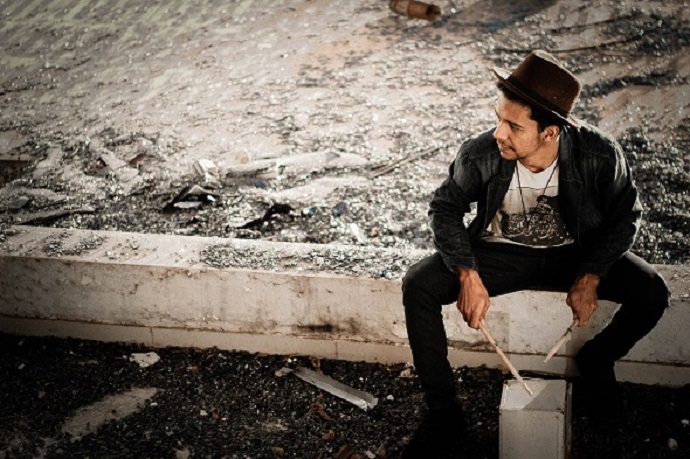
It might not be the first thing you associate with career change, but creativity is at the very core of making a shift into work you love.
Innovation (coming up with new ideas for your future career) is a creative process.
Tackling problems, obstacles, and challenges (How do you get taken seriously with no experience? How are you going to make the money work?) is a creative process.
Exploring yourself from new perspectives (What are you so naturally great at, you don't even realise it's a skill?) is a creative process.
And creativity thrives in a playful environment.
To create, you have to mess up. You have to try things and discard them, hit roadblocks and re-route, encounter hiccups and wiggle your way through them.
'Serious' doesn't like that idea. Hiccups are disastrous. 'Serious' lives to avoid hiccups.
But when we play, mistakes are expected. They're fascinating. We allow them, move with them, and dive back in again, eager to get back to the flow and the giggles of the game.
In 1968, a chemist named Dr. Spencer Silver was working at 3M trying to create super-strong adhesives to be used to build planes in the aerospace industry. Instead, however, he accidentally managed to create an incredibly weak, pressure-sensitive adhesive.
Embarrassing, right? What a mess-up.
Until a colleague of his, who sang in a choir outside of work, got frustrated with the way his page markers kept falling out of his hymn books. Remembering Silver's 'mistake', he suggested they use the accidental adhesive on the back of pieces of paper, so they could be stuck down and then easily removed and moved whenever needed.
Welcome to the world, Post-It Notes.
An exploratory mistake… that led to a playful 'What if?...' that led to one of the biggest office supply products in the world.
“The genius of play is that, in playing, we create imaginative new cognitive combinations. And in creating those novel combinations, we find what works.” – Stuart Brown, founder of the National Institute for Play
'Serious' is draped in restrictive words like 'should', 'must', 'can't', 'impossible', 'required', and 'but'.
Play, on the other hand, is full of curiosity, suggestion, and wonderment:
'What if?', 'How about?', 'Could it be?'
Which do you think is more conducive to discovering something you just love to do?
When Myriam Hadnes reached a dead-end in her attempt to shift into Learning and Development and HR, she could have given up entirely.
But instead she headed back out into the world and embraced some 'silly', playing (in public) with a very un-serious job title:
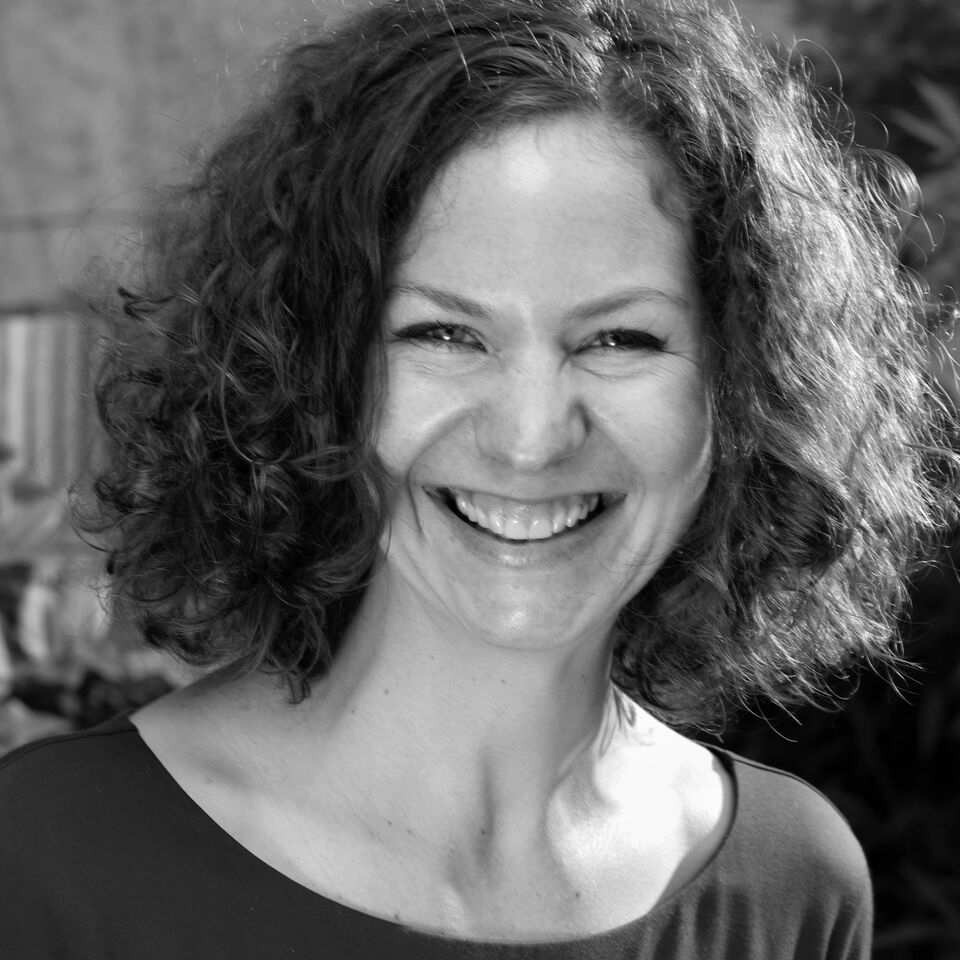 “After a few failed applications, and rather out of boredom, I joined a meet up with female entrepreneurs.
“After a few failed applications, and rather out of boredom, I joined a meet up with female entrepreneurs.
“In a conversation, I stated that I considered myself as a 'random idea generator and professional brainstormer'.
“One participant joked that I should throw idea parties. I sat with this idea for a while and eventually transformed it into the mastermind concept.
“It's been the best decision I've ever taken in my life.”
A random idea generator and professional brainstormer, ladies and gentlemen, is Not A Thing. It was a tongue-in-cheek, off-the-cuff, playful comment, that led to a moment of realisation.
A silly sentence that sparked a solution.
A weird idea that led to a great one.
It's time to start relaxing into the mess, embracing it, dancing with it, rather than holding it at bay.
Play is practice
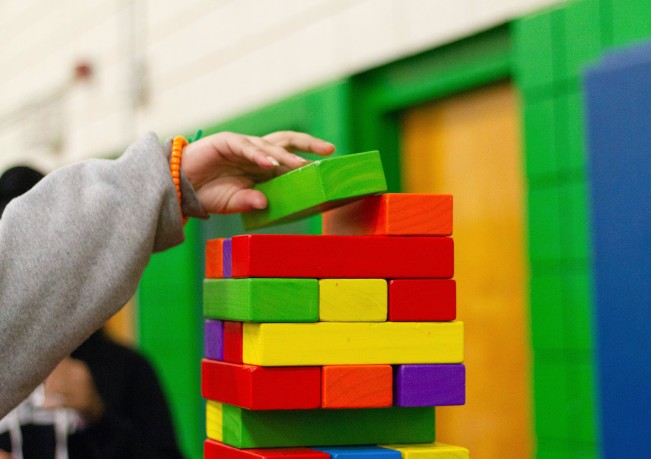
As children, we learned through play, practising for adulthood by developing the physical and intellectual skills necessary for our future lives as adults (the endless hours spent fitting circular blocks into circular holes pays off – and when it doesn't, it's clear.)
But as adults, we stop allowing ourselves to practise.
We hesitate to put ourselves in situations where we might get things wrong, where we might fail – because then we might look bad in a world that predominantly celebrates shine and success.
And yet, it's in the practising that we find clarity and certainty.
Stine Dulong hadn't known, when she started an evening pottery class, that she had a natural talent for it. She hadn't known that she would learn and refine skills in that class that would lead to a whole new career path.
She was just learning and practising. Preparing, unconsciously, for what was to come.
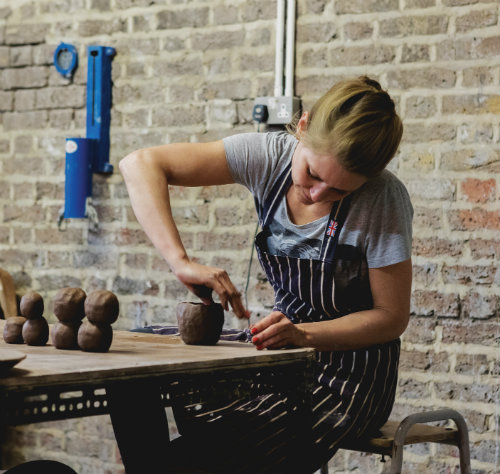 “I didn't start making ceramics because I was hoping that one day Nigella Lawson would start following me on Instagram. Don't get me wrong, it's amazing that people like what I do, but I did it for me. Not for Nigella, not for my parents, not for my careers adviser or anyone else.
“I didn't start making ceramics because I was hoping that one day Nigella Lawson would start following me on Instagram. Don't get me wrong, it's amazing that people like what I do, but I did it for me. Not for Nigella, not for my parents, not for my careers adviser or anyone else.
“I did it because I love making ceramics. I'd like to think that when people pick up one of my pieces, they can feel that it's been made with passion, care and love – that this isn't something that's been made just for commercial gain.
“Be brave, take some chances and stop striving for perfection. It's OK to fail and it's OK let go of control.
“Stop caring so much and take the pressure off yourselves to achieve.”
Play isn't just silliness. It's practice, preparation.
Play to learn, to develop confidence, to hone your abilities.
Try new things. Do more of the old ones you love.
Don't wait for opportunities to arise before you develop the skills to handle them. By that time, it will be too late. Practice, with the lightness and ease that comes with play.
We never know what opportunities might be around the corner – what unexpected paths might open up in the front of us. Opportunity rarely knocks right on time – more often than not, it shows up early.
Be ready. Play.
Lighter = faster

“The opposite of play isn't work, but depression.” – Stuart Brown
I've never met a career changer who was treating their shift with playfulness and light, and who was also stuck in their head and out of action.
When you're taking things too seriously, it's easy to get trapped in trying to 'figure it out', running crazy-thought-loops inside your head, trying to prejudge or second-guess every possible move.
But when you're playing, you're in action. Experimenting, getting your hands dirty, discovering things you never could have otherwise predicted.
Nothing moves until you engage with the world – get out of your head and start moving things around, testing ideas, giving things a go.
Lee Mannion had a long-standing dream of becoming a writer. It felt high-stakes – he'd tried it in a number of ways before and it had never paid off. But by bringing a playful, creative approach to a company he admired, he created an opportunity that never otherwise would have existed:
 “I made an offer to the guy who's now my boss.
“I made an offer to the guy who's now my boss.
“The offer was this:
“'I'll come and work for you for a week, for free. And if at the end you like what I've done, you can pay me – and if you don't think I'm any good at it, don't pay me.'
“All he had to do was find me a chair in the office.
“I came up with some ideas for stories, and then I wrote them – so he was getting free content for the website as well.
“He didn't have to pay me, so he had nothing to lose by giving it a try.
“So I went, for a week, in July. It was a bit tricky because he wasn't around much that week. On top of that I had to take some freelance work for half the week.
“I took this really unconventional, exciting action and then… nothing happened. I thought, 'OK, that's another failure'.
“But then, the following January, he got in touch to ask what I was up to.
“I met him on a Thursday for a couple of hours, and on the Tuesday I had a job offer in my inbox.”
The more you can get out of your brain (your serious, analytical, thinking brain) and into action (playful, exploratory, 'What's the worst that can happen?' action), the more progress you'll feel. Because real, tangible progress (the kind that visibly moves you forward in your shift) doesn't happen inside your skull. It happens out here, in the world.
“It's all so much more interesting and productive, now. I'm having ideas I could never, ever have conceived of, because I've turned my nervous little filters off and got stuck in.
“I'm not making major, life-changing decisions right away, but I've stopped stopping myself whenever I think something might not work. I've taken my silly, crazy ideas just a step further than I normally would have, and that's where everything I've been looking for has come from.” – Amy (Launch Pad participant)
Serious and significant keeps you safe, but playful opens up potential

The weight of a 'serious' shift is compelling.
Maybe you've been there a while – navel-gazing, considering, worrying, dancing one step forward, three steps back. Huffing, puffing, making endless lists and asking yourself meaningful questions… and never really getting anywhere.
Or maybe you've got caught up in the drama of the situation (It's so scary! It's so hopeless! It's such a big deal! Poor me!), and ended up completely distracted from what there is to do in your career change.
As long as you're overwhelmed by how significant this all is, your attention will always be on yourself and your internal dialogues, instead of on what's happening (and what's possible) out here, in the world.
And it's a great excuse for staying inside your comfort zone. If your situation is risky enough, you won't have to try new things. You can rationalise yourself completely out of anything that feels challenging, play small, and ultimately, stay stuck.
“Looking back, I think I was scared of finding myself in a situation where there was nothing stopping me from making a shift. Because then, I'd actually have to do it.
“As long as I could sit in the pub with my friends and tell them how trapped I was by my mortgage and my son, and how absolutely crucial it was that I didn't screw up, I'd never really have to put myself on the line. I'd never have to find out I couldn't do it, either – that was the other side of it.
“Even though it didn't feel nice, it was definitely easier (and I got a lot more sympathy) to keep thinking about everything that could go wrong.” – Natalie (Career Change Launch Pad participant)
During her eight weeks in our Launch Pad, Natalie learned that although there were important elements at play in her career change (her mortgage, her marriage, as well as her day-to-day happiness), she didn't have to let them keep her distracted.
She could consider what was important to her and manage the risks, while still playing the career change game full-out.
Emily Kenway worried for years about what a shift from her career in opera would do to her sense of identity – and indeed if anyone would even take her seriously if she tried.
But by applying for internships without expectation, she managed to surprise herself (and learn that a lot of her preconceptions about what she had to worry about were way off-piste):
“For me, the most difficult thing about changing was my own fear. Looking back, I can see now that I would have changed a lot earlier if I'd had the courage. I used to feel like I was in a cage and there just wasn't a way out….
“In a way, I'm glad I did it in 2011 and not earlier because I had some great experiences singing. But if I'd had the courage, I think I would have liked to have done it sooner. I also wish I'd worried less! I spent a lot of the first year after changing being anxious that I'd never get properly hired and that my CV looked too odd for prospective employers. It turned out not to be true at all.
“Apparently, weird goes down well!”
A light touch goes a long way when it comes to pushing the boundaries of your comfort zone. The less pressure you put on yourself, the more you're able to explore – and the more likely you are to discover possibilities you never imagined existed...
Fun attracts supporters (doom and gloom pushes them away)

At Careershifters, we hear this a lot: "My friends and family used to be supportive, but now I think they're just sick of hearing me moan."
If this sounds at all familiar, you're almost certainly in the 'too serious' camp.
A supportive group of people on your team is one of the most powerful factors at play in a career change. The more solid a team you have, the faster your shift is likely to move.
And although what you do for a living is an important subject, it's hard to get people feeling energised and supportive when you're being Mr/Ms Misery Guts.
I'm not saying for a second that you shouldn't tell people how much this means to you, or share your struggles. I am suggesting, however, that enthusiasm, light-heartedness, curiosity and a willingness to play are highly infectious.
If you want to get people in your corner cheering you on, doom and gloom, catastrophising and thunder are unlikely to help.
“I've noticed how quick the people around me are to pick up on and mirror what I'm like when I speak to them about my career change. I used to call my friends to complain after a bad day at work, and they'd agree that my boss was awful and this was all hopeless…
“But if something comes up in my career change now that I'm concerned about, I'll say something like: 'It's frustrating, but it's also a really interesting challenge. I wonder what solutions there are that I've missed…' and they'll mirror my curiosity and good humour. I've realised that I get to show my support team how to support me.” – Mark (Launch Pad participant)
What if all this sounds great, but you're stumped on how to actually break free of 'serious' and start having some fun?

Theory is useful, but it doesn't always get the ball rolling.
And if you're out of practice in the play department, it can be helpful to start small, and start with something specific.
Pick an idea from the list below (the one that feels the most fun and exciting!) and then come back to let me know how it goes...
1. Play with people
- Seek out (and hang out with) the kind of people you're intrigued by. Do you spend time watching TED talks by explorers? Fascinated by the way designers see the world? Love listening to historians? Find a meetup group, a related event, or a community and join their ranks.
- Share the journey. The faster you can get other people around you to support and participate in your shift, the easier and quicker you'll find things move. Create a support team, blog about your experiences, and reach out for advice. Everything's more fun when it's shared.
- Reach out to people who are up to something that interests you. Send them a love letter. Acknowledge their work. Ask to chat.
2. Play with things
- Make a list of your if-only ideas (the ones you'd love to follow up 'if only' they were well paid / realistic) and choose three to turn into a Shift Project.
- Sign up for a course you've been interested in for a long time. Martial arts always tickled your fancy? Drop in for a taster class. Love photography? Join a group.
- Keep track of your career change in a way that really floats your boat. If you're creative, scrapbook your ideas and activities. More of a tick-box type? Grab a calendar and put a star on every day you've done something to further your shift.
3. Play with your mindset
- Set up a 'magic circle' for playfulness: an hour per day, one afternoon per week, 'when I'm at the supermarket' and see what shows up. (In his 1938 book Homo Ludens, Dutch cultural historian Johan Huizinga referred to the idea of 'magic circles', “temporary worlds within the ordinary world, dedicated to the performance of an act apart.” Play, he says, emerges when it's given permission to be present, and the best way to create permission is to set its boundaries; a time (like recess at school), or a place (like a tennis court). Building a special space away from normal activity is key to enhancing your creative capability.)
- Learn to laugh at your seriousness. Turn it into a game: see if you can catch yourself getting significant and dramatic and stuck. The more you catch yourself, the more you win.
- Challenge yourself to spend a week without letting any doom and gloom come out of your mouth. Finding your day job intolerable and dying to moan about it to your friends? Switch it up and ask for their ideas on ways to make tomorrow more enjoyable. Talking to someone new about your career change? Make every statement positive and curiosity-filled (and see what it does to their level of interest).
How are you going to start taking your career change less seriously this week? Let me know in the comments below.




